
The director of the pediatric epilepsy monitoring unit at the Medical University of South Carolina provided commentary on the significance of Purple Day as a means to raise awareness about epilepsy. [WATCH TIME: 3 minutes]

The director of the pediatric epilepsy monitoring unit at the Medical University of South Carolina provided commentary on the significance of Purple Day as a means to raise awareness about epilepsy. [WATCH TIME: 3 minutes]
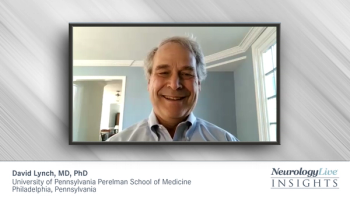
An expert discusses how vatiquinone targets Friedreich ataxia in patients with balance issues by inhibiting 15-lipoxygenase to reduce oxidative stress. Novel dual-route gene therapy combines systemic IV and targeted dentate nuclei delivery, addressing both central and peripheral manifestations while potentially offering disease-modifying benefits.

An expert discusses how omaveloxolone is a nuclear factor erythroid 2-related factor 2 (Nrf2) activator that addresses oxidative stress and mitochondrial dysfunction in Friedreich ataxia. It works by binding to Keap1, which releases Nrf2 to enter the nucleus and upregulate antioxidant genes. Clinical trials showed modest improvements in neurological function, as measured by modified Friedreich Ataxia Rating Scale scores. Adverse effects include headache, nausea, and elevated liver enzymes. Omaveloxolone has been integrated into clinical practice as part of multidisciplinary care, requiring regular monitoring and coordination with physical therapy, cardiology, and other specialties.
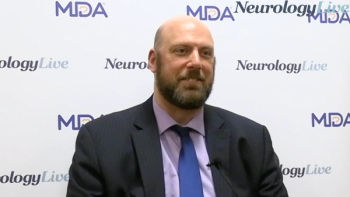
The associate professor of pediatric neurology and genetics at the University of Alabama Birmingham provided clinical insights on the key signaling pathways currently being targeted in the treatment of muscular dystrophies. [WATCH TIME: 4 minutes]
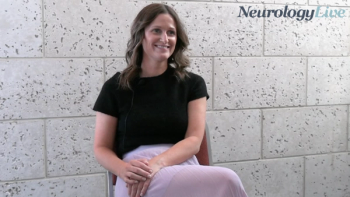
The assistant professor in the department of neurology at Mount Sinai discussed distinguishing cognitive impairment in MS from AD emphasizing orientation as a key differentiator. [WATCH TIME: 5 minutes]
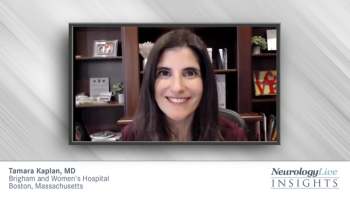
Panelist discusses how managing bladder and sexual dysfunction in neurological care requires addressing access barriers, fostering open communication, recognizing symptom overlap, understanding medication adverse effects, and providing gender-specific care.
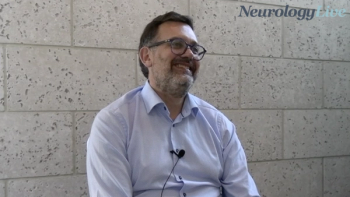
The professor of neurology at University of Colorado School of Medicine talked about the challenges of telehealth and device-based data collection in clinical practice. [WATCH TIME: 4 minutes]
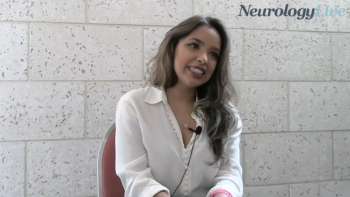
Despite advancements in NMOSD treatments, the founder and executive director of the Sumaira Foundation discussed how misdiagnosis, delayed diagnosis, and disparities in care remain significant challenges. [WATCH TIME: 4 minutes]
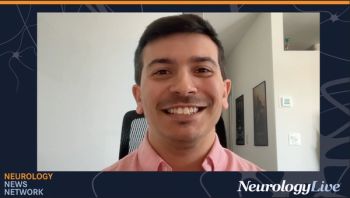
Neurology News Network. for the week ending March 22, 2025. [WATCH TIME: 3 minutes]
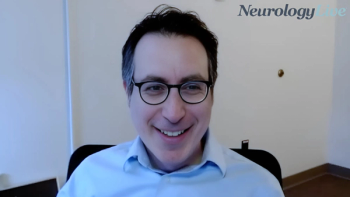
The professor of neurological sciences at the University of Vermont discussed the work of the MS Differential Diagnosis Consortium, highlighting efforts to refine MS differential diagnosis and improve clinical accuracy. [WATCH TIME: 8 minutes]
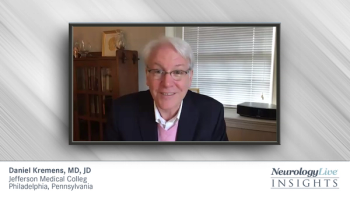
An expert discusses how patients with dyskinesia are well suited to use pumps and how subcutaneous dopamine agonists avoid the issues previously associated with oral dopamine agonists.

An expert discusses upcoming advancements in Parkinson disease treatments, including the potential release of the ND0612 pump later this year, demonstrating efficacy comparable to oral carbidopa/levodopa, the dopamine agonist tavapadon, CVN424 as a novel therapy not targeting the dopamine pathway, and ongoing stem cell and gene therapy developments, with stem cells capable of creating dopamine-producing cells entering phase 3 studies.
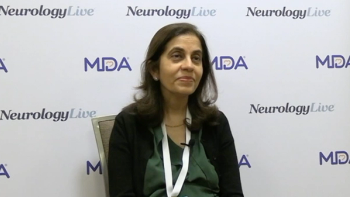
The professor of pediatrics and division chief of Medical Genetics at Duke University gave clinical insight on a presentation on the advancements and limitations of enzyme replacement therapy for Pompe Disease. [WATCH TIME: 3 minutes]
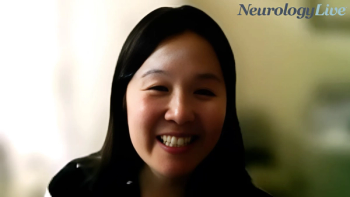
The medical director of the Barlo Multiple Sclerosis Program at St Michaels Hospital discussed findings from phase 3 trials suggesting that baseline PRLs can predict disability accumulation and may serve as biomarkers for treatment response to tolebrutinib. [WATCH TIME: 6 minutes]

The professor of pediatrics and division chief of Medical Genetics at Duke University delved into the transformative impact of enzyme replacement therapy on Pompe disease, addressing its advancements, limitations, and promising innovations shaping its future. [WATCH TIME: 2 minutes]
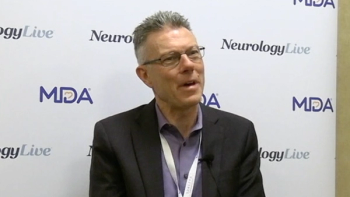
The chief scientific officer at Satellos Bioscience gave clinical insight on a new novel treatment and its mechanism of action in treating Duchenne muscular dystrophy. [WATCH TIME: 5 minutes]
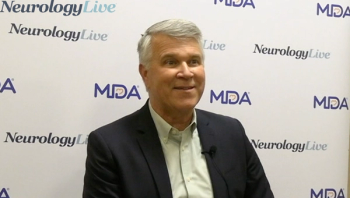
The chief scientific officer at Avidity Biosciences provided clinical perspective on the function and mechanism of del-zota, an investigational antisense treatment in development for DMD amenable to exon 44 skipping. [WATCH TIME: 3 minutes]

Panelist discusses how a neurologist typically manages neurogenic bladder when it stems directly from neurological conditions, they’re already treating but that they should refer to urology for complex cases requiring specialized urologic interventions, when conservative management fails, or when there are complications such as recurrent urinary tract infections or structural changes. Close collaboration between both specialists often provides optimal patient care.

An expert discusses how Friedreich ataxia significantly impacts quality of life through progressive neurological deterioration affecting mobility, coordination, and cardiovascular health. Standard care includes symptom management with physical/occupational therapy and cardiac monitoring for both pediatric and adult patients. Multidisciplinary teams (neurologists, cardiologists, therapists, and genetic counselors) coordinate comprehensive care addressing the disease's multisystem effects.
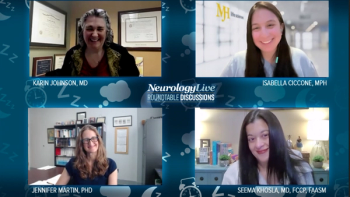
Experts in sleep medicine discuss the detrimental effects of daylight saving time on sleep, health, and public safety, advocating for the adoption of permanent standard time. [WATCH TIME: 5 minutes]

An expert discusses how Friedreich ataxia is an autosomal recessive neurodegenerative disorder caused by trinucleotide (GAA) repeat expansion in the FXN gene, reducing frataxin protein production. This leads to mitochondrial dysfunction and progressive damage to the spinal cord, peripheral nerves, and heart. Patients present with progressive ataxia, dysarthria, sensory loss, and areflexia, typically manifesting between ages 5 and 15. Diagnosis relies on clinical assessment, genetic testing for GAA expansions, and supportive findings, including cardiomyopathy, scoliosis, and diabetes.

Experts discussed the negative health and societal effects of daylight saving time, advocating for a permanent switch to standard time to improve sleep, well-being, and productivity. [WATCH TIME: 6 minutes]

Experts discussed the biological misalignment caused by daylight saving time, emphasizing its negative effects on sleep, particularly in adolescents, and advocating for a shift to standard time to better align with natural circadian rhythms. [WATCH TIME: 6 minutes]
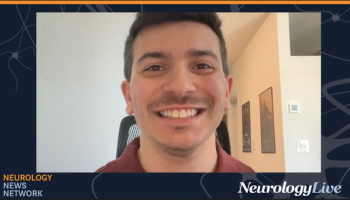
Neurology News Network. for the week ending March 15, 2025. [WATCH TIME: 3 minutes]

Experts discussed the effects of daylight saving time on sleep patterns, cognitive function, mood, and overall health, highlighting challenges and adaptation strategies. [WATCH TIME: 6 minutes]

An expert discusses the extended form of carbidopa/levodopa (Crexont) for managing OFF episodes, highlighting trial results that show decreased OFF time and increased ON time, as well as the use of subcutaneous loading of medications in Parkinson disease, which was well tolerated with skin issues as the main adverse effects and resulted in increased ON time without worsening dyskinesia.

An expert discusses how providers can accurately track episodes of OFF and dyskinesia, highlighting their impact on patients physically, socially, and psychologically, including the challenges dyskinesia poses for sleep and fine motor tasks.

Experts discussed how daylight saving time affects sleep patterns, particularly in individuals with insomnia and other sleep disorders, highlighting the challenges of adaptation and the risks of chronic sleep loss. [WATCH TIME: 5 minutes]
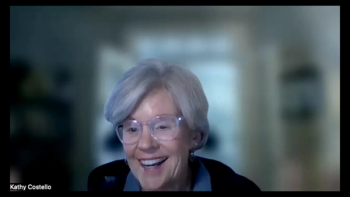
Kathleen Costello discusses her new role as interim CEO of the CMSC. She has the support of Jeff Wilken, CMSC president, and Tina Trott, CMSC director.
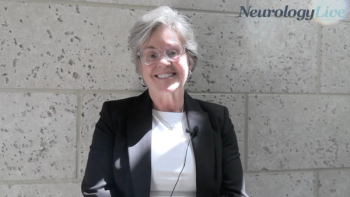
The interim chief executive officer at the Consortium of Multiple Sclerosis Centers invites healthcare professionals to the Consortium’s annual meeting from May 28–31 in Phoenix, Arizona. [WATCH TIME: 2 minutes]